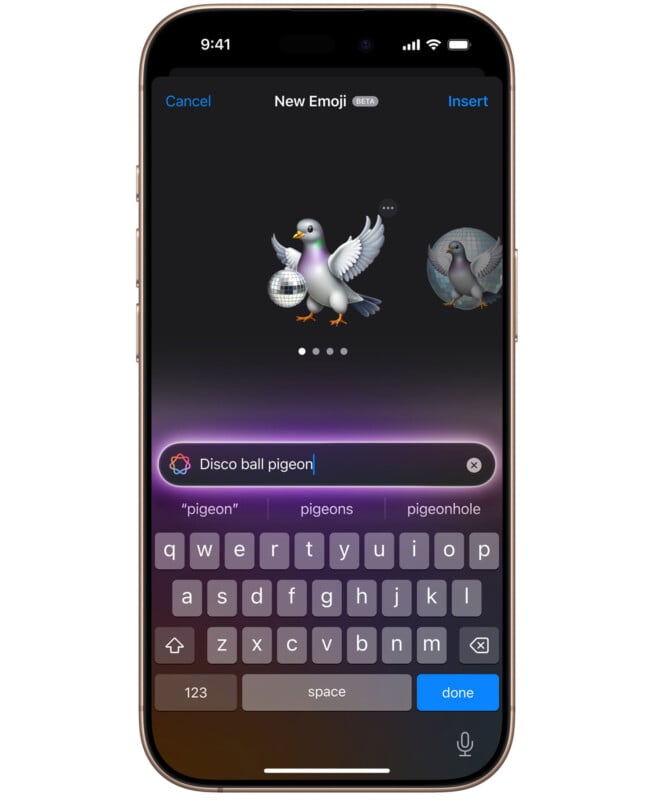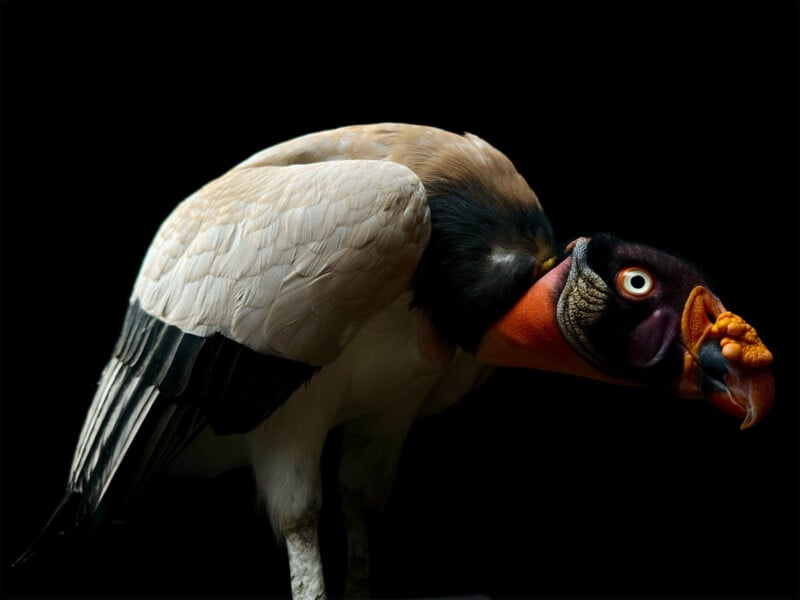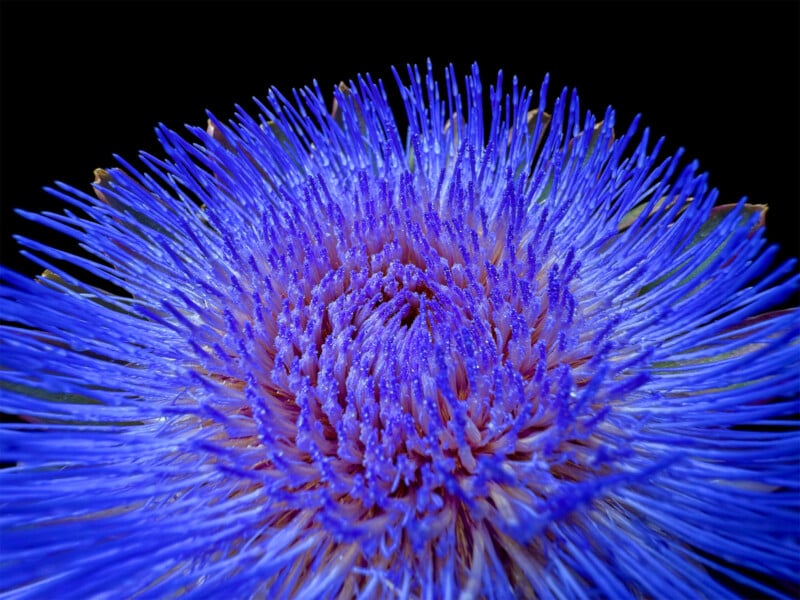If You Care About Photography, Apple’s Approach Should Have You Cheering

At PetaPixel, we’ve been covering generative AI advancements pretty heavily over the last two years for two major reasons. One, the technology is becoming inextricably linked to the software we use to edit photos, and two, it simultaneously represents an existential threat to the art of photography.
Some of you might not like seeing so much AI coverage here and we get that, but it’s our responsibility to keep you informed on how the technology is advancing. Last month, Google took a very big step toward ticking the AI annihilation clock to midnight when it gave the Pixel 9 Pro the ability to change the reality of a photo fast, easily, and believably.
As I wrote back in August, because the AI-generated changes to images can be so believable, Google’s implementation if its “Reimagine” tool lacks anything close to the proper levels of disclosure they need. Google lets these images be altered and then doesn’t do anything to inform a viewer that any of it is AI-generated. While it was a rather tepid approach, at least Samsung puts a watermark on the images it makes with generative AI.
In its testing, The Verge was able to generate wrecks, disasters, drug use, and corpses and add them to real photos in a way that didn’t make them look obviously fake. While Google says it is embedding AI alterations as metadata, it’s not immediately obvious even to those of us who are used to looking through metadata and it’s not the industry standard C2PA metadata that Meta looks for to mark images as made with AI.
Post by @chriswelchView on Threads
“Pixel Studio and Magic Editor are helpful tools meant to unlock your creativity with text to image generation and advanced photo editing on Pixel 9 devices. We design our Generative AI tools to respect the intent of user prompts and that means they may create content that may offend when instructed by the user to do so. That said, it’s not anything goes,” Google’s Alex Moriconi said to The Verge last month.
“We have clear policies and Terms of Service on what kinds of content we allow and don’t allow, and build guardrails to prevent abuse. At times, some prompts can challenge these tools’ guardrails and we remain committed to continually enhancing and refining the safeguards we have in place.”
Based on the content The Verge was able to make, those guardrails are either not working or not working well enough.
Post by @jpscribblesView on Threads
Both PetaPixel and The Verge have been outspoken critics of the stance that many generative AI advocates take: that Photoshop was hit with the same “pearl-clutching” reaction back when it debuted.
“It’s easy to make this argument if you’ve never actually gone through the process of manually editing a photo in apps like Adobe Photoshop, but it’s a frustratingly over-simplified comparison,” The Verge writes in its detailed breakdown of this flawed argument.
“The type of hand-waving appearing with increasing regularity whenever someone raises concerns over the ease with which people can create convincing, photorealistic fake photos using generative AI technology is, at best, silly. At worst, it’s a dangerous conflation that seeks to discredit genuine concerns about the safety of AI and the hazards it poses to society,” PetaPixel‘s Jeremy Gray wrote.
Not to beat a dead horse, but this laissez-faire approach to providing generative AI tools to large masses of people is downright irresponsible and dangerous. That’s why people who love and care about photography — real photography — should be cheering on Apple’s approach to this topic regardless of whatever mobile “team” they are on.
A Photo is ‘Something That Really, Actually Happened’
Speaking to The Verge this week, Apple went on the record to say exactly what it thinks a photo is, and it’s in stark contrast to how Google and Samsung have talked about the same topic.
“Here’s our view of what a photograph is. The way we like to think of it is that it’s a personal celebration of something that really, actually happened,” Apple’s Vice President of Camera Software Engineering Jon McCormack says.
Let’s compare that to Samsung and Google’s statements on the topic:
“There was a debate around what constitutes a real picture. And actually, there is no such thing as a real picture. As soon as you have sensors to capture something, you reproduce [what you’re seeing], and it doesn’t mean anything. There is no real picture,” Samsung’s Head of Customer Experience Patrick Chomet said.
“What some of these edits do is help you create the moment that is the way you remember it, that’s authentic to your memory and to the greater context, but maybe isn’t authentic to a particular millisecond,” Google’s Isaac Reynolds told Wired.
Whether or not you like Apple’s products, there is a clear difference here: Apple cares about the sanctity of a photo.

“Whether that’s a simple thing like a fancy cup of coffee that’s got some cool design on it, all the way through to my kid’s first steps, or my parents’ last breath, It’s something that really happened. It’s something that is a marker in my life, and it’s something that deserves to be celebrated,” McCormack continues.
“And that is why when we think about evolving in the camera, we also rooted it very heavily in tradition. Photography is not a new thing. It’s been around for 198 years. People seem to like it. There’s a lot to learn from that. There’s a lot to rely on from that. Think about stylization, the first example of stylization that we can find is Roger Fenton in 1854 — that’s 170 years ago. It’s a durable, long-term, lasting thing. We stand proudly on the shoulders of photographic history.”

If you have no problem with generative AI, then what Google and Samsung said probably doesn’t bother you. However, many photographers are concerned about how AI will alter their jobs. From that perspective, those folks should be cheering on Apple for this stance. Right now, it’s the only major smartphone manufacturer that has gone on the record to steer photography away from the imagined and back to reality.

Skeptics may argue that Apple is just saying this now because its AI photo technology is behind Google’s and Samsung’s, but I hold hope that this is just one more example of Apple being the more patient company that isn’t so concerned with being first but more the one who takes its time to decide if a technology is worth pursuing.